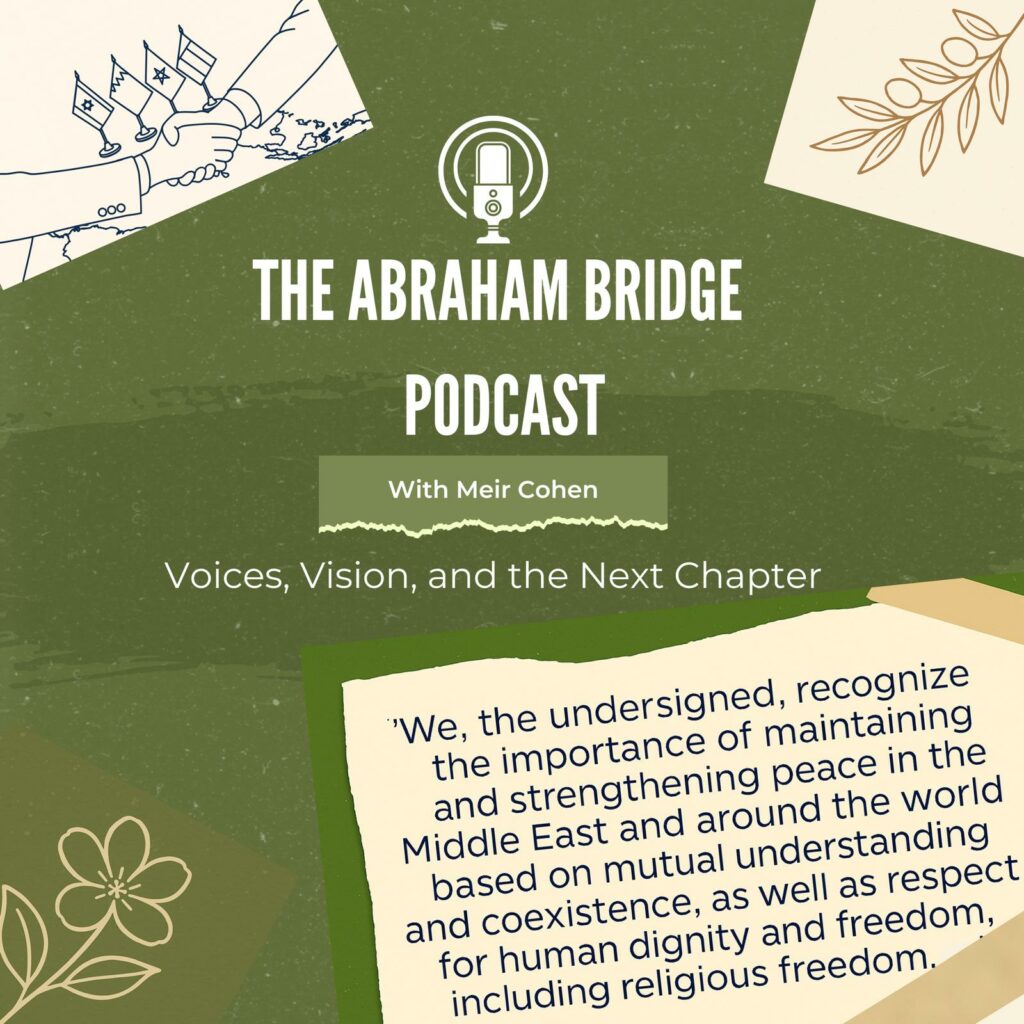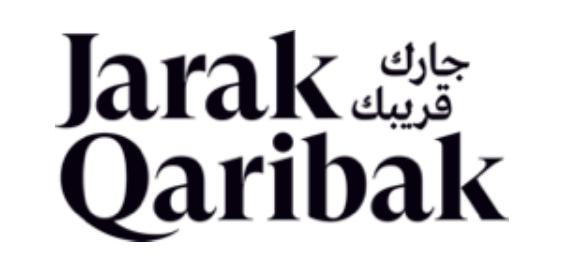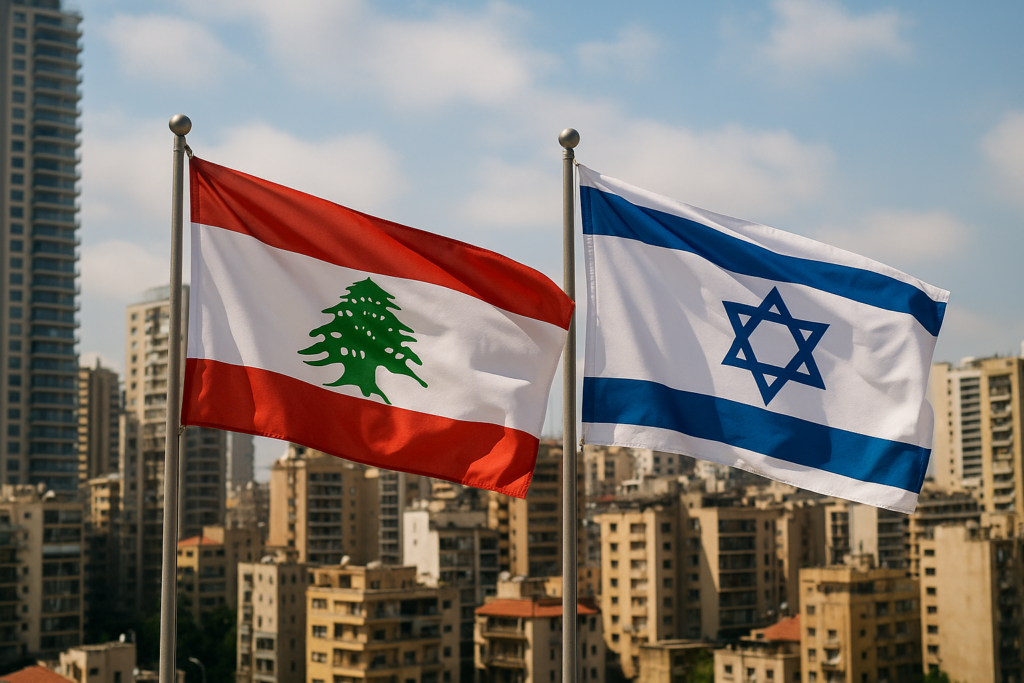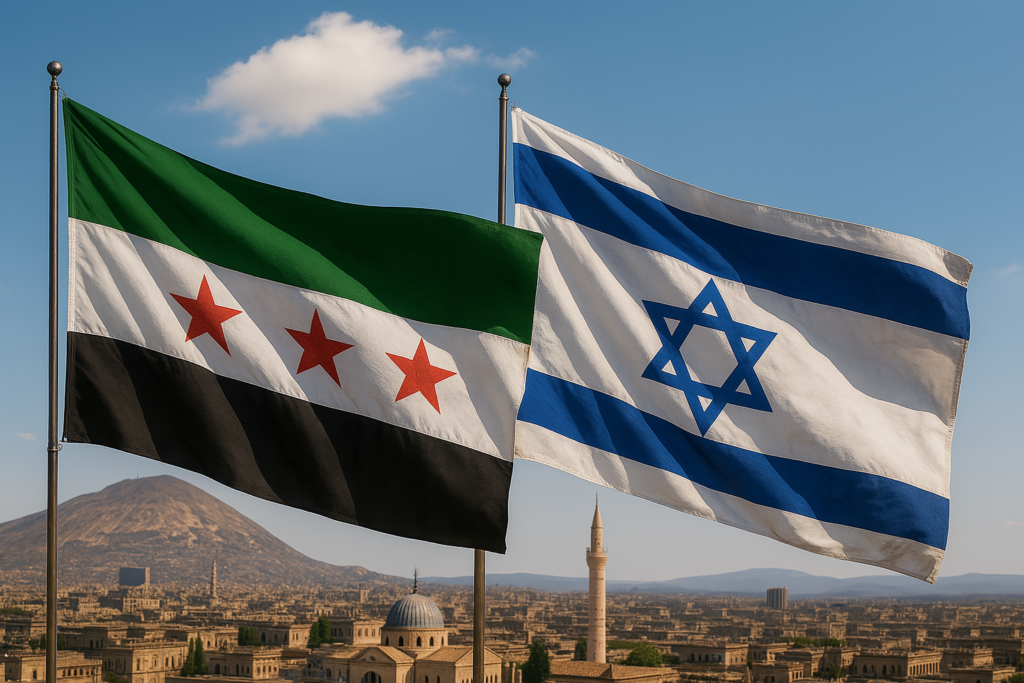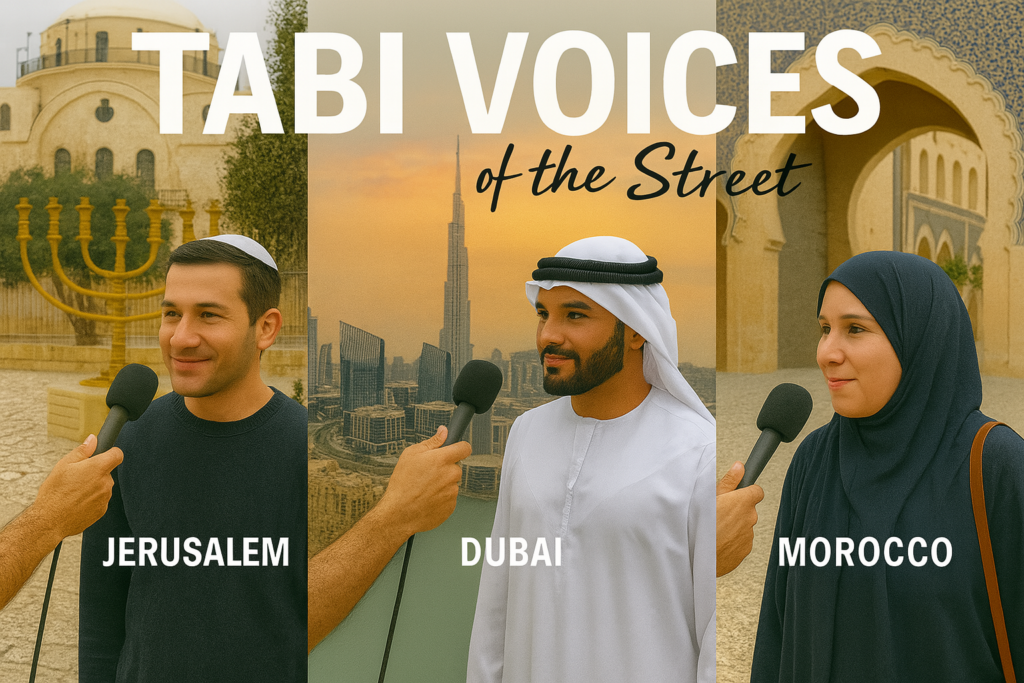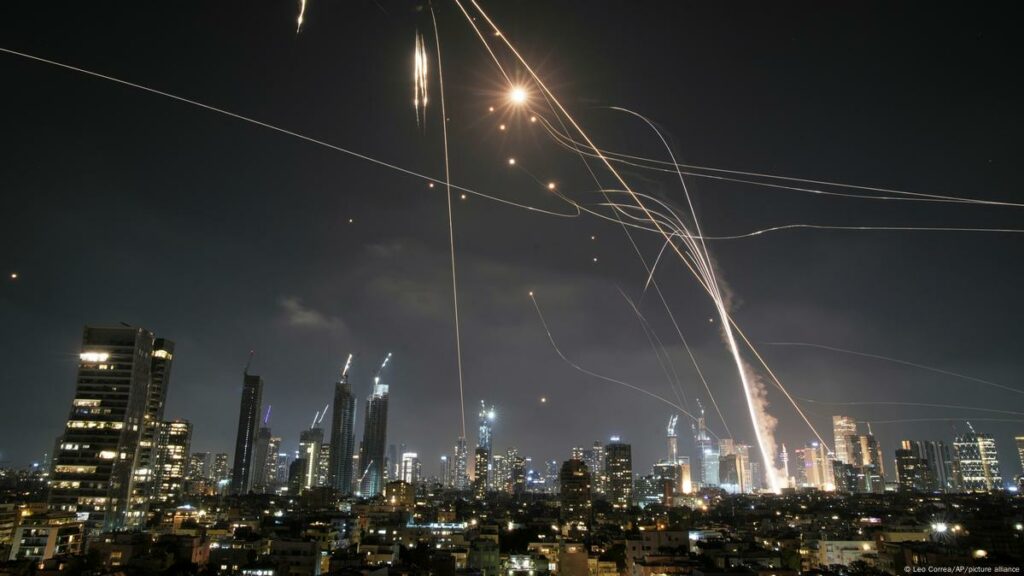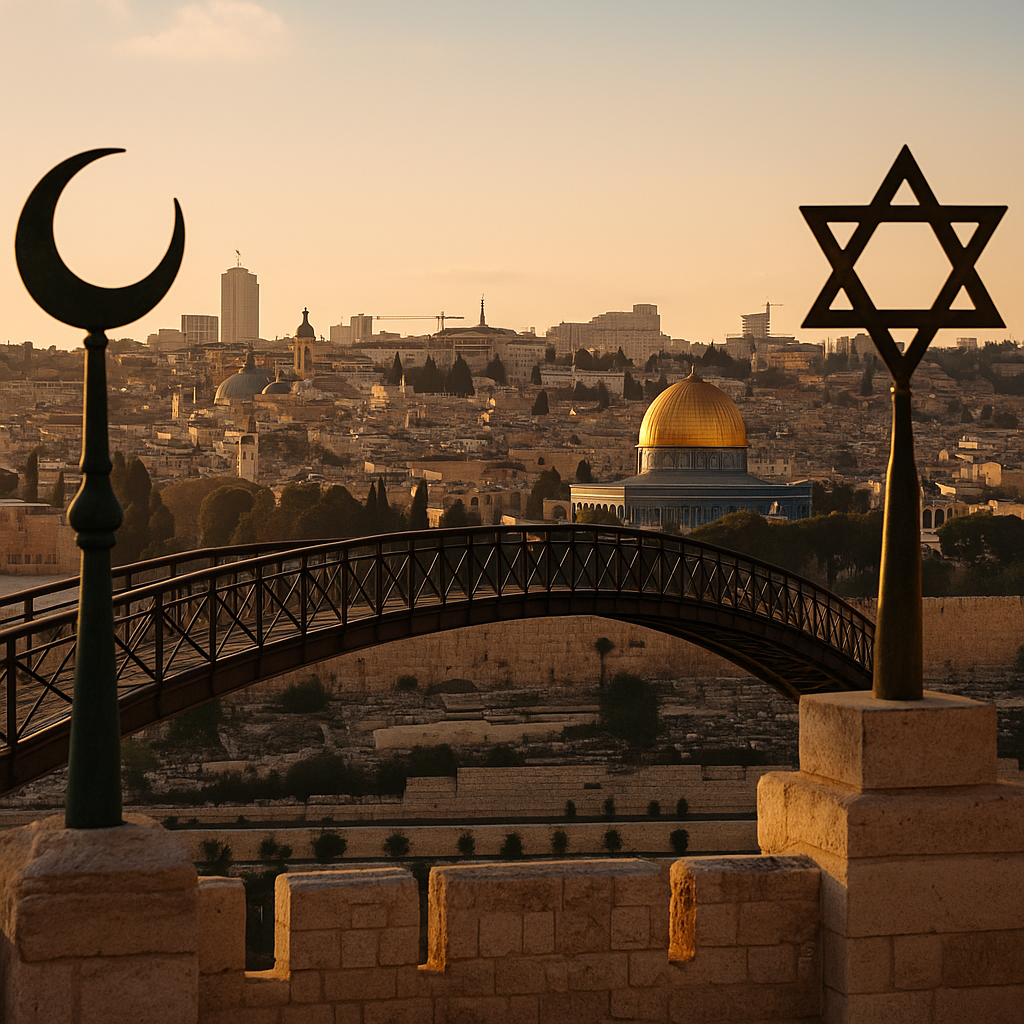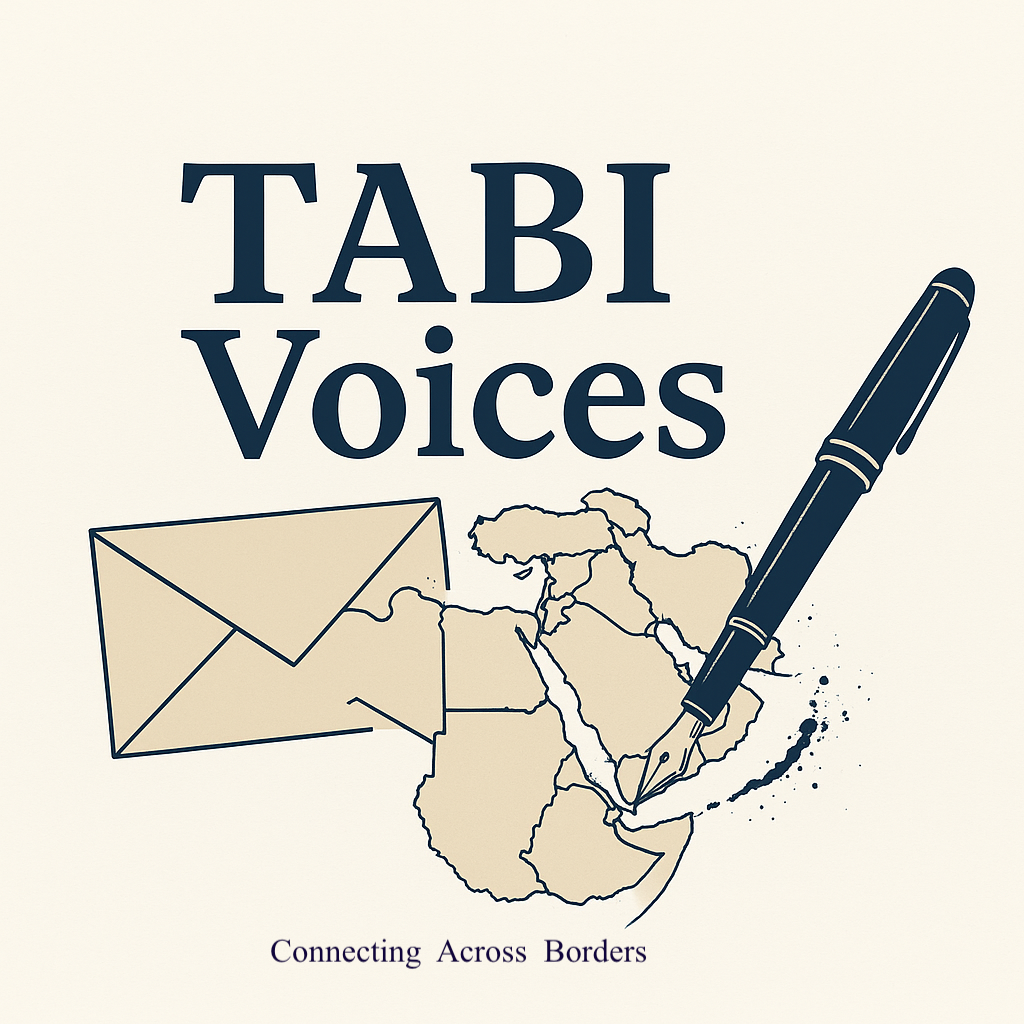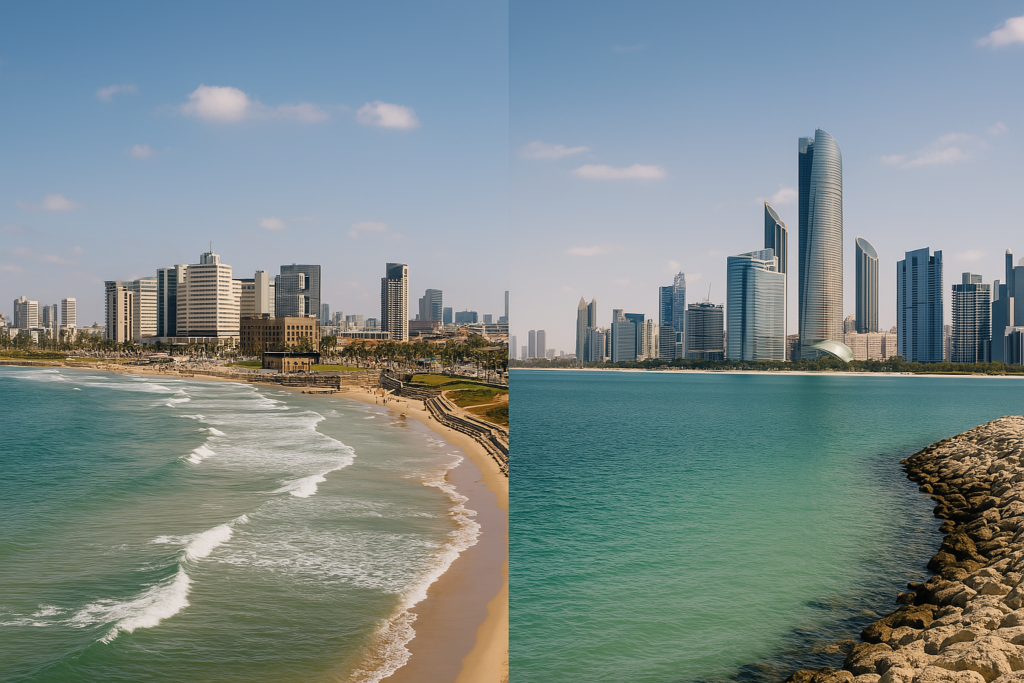The Abraham Bridge Podcast
The Abraham Bridge Podcast is based on the basic principle of peace via dialogue. This podcast emerges from a simple but pressing need: to bring human-centered dialogue into the heart of regional cooperation. The Abraham Bridge Initiative was created to connect young leaders from across the Middle East and beyond, encouraging them to engage in …

